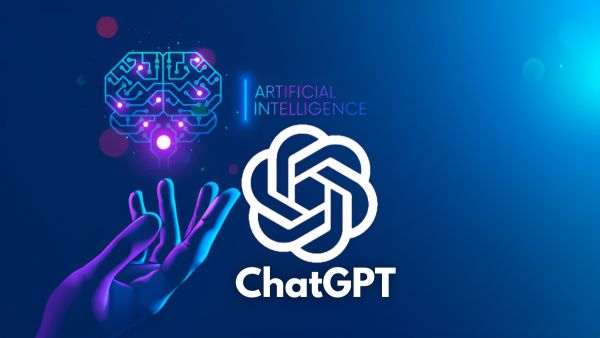ALBAWABA - Perhaps robots haven't taken over the world yet, but artificial intelligence and chatbots have created a significant buzz, leading us to anticipate their growing influence in our daily lives.
For many business managers, the emergence of ChatGPT, developed by OpenAI, has been a shining new innovation to elevate various industries and open new horizons in the market. Artificial intelligence is reshaping conversations, marketing strategies, and customer interactions. Automation and AI have become integral parts of administrative tasks, improving business outcomes, simplifying communication, and enhancing productivity.
With the diverse applications of artificial intelligence, the global chatbot market is expected to reach $10.5 billion by 2026, increasing by $7.6 billion from 2020.
As an advanced chatbot, it is not surprising that many organizations have invested in ChatGPT and artificial intelligence. This raises the question: "How will it impact the markets?"
here are some case scenarios across various industries and companies:
Legal Profession:
When it comes to artificial intelligence, it can help employees save time. In the legal profession, lawyers, legal assistants, and others can benefit from ChatGPT's ability to generate information from vast amounts of legal documents and datasets. By comprehending this data comprehensively, AI can organize it to answer complex questions based on this information.
Within a few months of ChatGPT's release, law firms and legal technology companies have already announced new ways to utilize generative AI tools. Despite all the mentioned benefits, there are significant challenges to consider when planning to incorporate ChatGPT in the legal field.
Ethical challenges come into play, including the creation of fake or misleading legal documents when discussing artificial intelligence, as well as potential violations of others' intellectual property rights, making your company liable for damages.
Marketing:
In the marketing field, ChatGPT may be a game-changer, akin to the launch of the iPhone in 2007. Besides generating texts, ChatGPT can create code for programmers and developers, analyze consumer data, and support marketing operations.
Some marketing professionals fear that ChatGPT may diminish their tasks or completely replace them as the capabilities of AI in marketing continue to grow. However, there may be no need for concern. While AI is a powerful tool that can be highly effective in marketing, human judgment remains crucial for understanding buyers and their motivations, and this is unlikely to change.
Nevertheless, the ability of artificial intelligence to eliminate repetitive and time-consuming tasks, reduce human errors, and expedite project progress represents some of its greatest benefits.
Business Communication:
This aspect is closely related to marketing but focuses on internal communication, where artificial intelligence currently proves to be a crucial pillar for corporate communications across different sectors. AI-supported business communications platforms can encourage task automation and provide actionable insights to aid decision-making.
Poppulo, a communications software company that is working on enhancing artificial intelligence, believes that AI can improve the formulation of corporate communications in several ways. For example, it can enhance the customer and employee experience by making communication more targeted, automate communication-related tasks, and provide essential research and insights on how communications are received.
By leveraging the power of ChatGPT and artificial intelligence, businesses can unlock new possibilities for efficiency, productivity, and improved customer experiences across various sectors.







